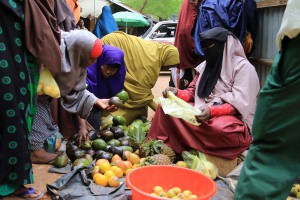Going back to Somalia will mean lost livelihoods for refugees, who have invested heavily in Dadaab camp
Cold sodas, ice cream, beef, chicken burgers and DStv connections are all up for sale in the bustling hub that is Hagadera Market in one of the five camps that make up Dadaab Refugee Camp complex.
So vibrant is Hagadera that it has attracted traders from all over the country, who have set up stalls selling every imaginable merchandise.
Even more impressive is the way the refugees have engineered a solution to one of their most pressing problems at the camp: electricity supply. Deep in the bowels of Hagadera market is an electricity generating and distributing plant that is, on a serious note, more reliable than Kenya Power. Run by three refugees who fled Somalia when civil war broke out in 1991, it has, since 2006, provided power to some 3,000 households everyday. Each household pays Sh200 a day for the service.
In the same compound are a restaurant and an ice plant that makes and sells ice blocks to the refugees.
Mr Farah Abdi Issa, one of the proprietors, was only too glad to take us around as he supervised the mid-morning bustle, explaining through a translator what it means to have the responsibility of providing electricity to thousands of people every day.
“We run the service 24 hours a day, with only two interruptions—at 2am and 2pm, each 30 minutes long,” said Mr Issa.
The interruptions are necessary to give his employees time to remove ice blocks from the coolers and fill up the containers with fresh water with which to make some more without the risk of electrocution, he explained.
“We provide ice blocks to more than 100,000 people every day,” said Mr Issa. “We chop up the ice blocks into smaller pieces and sell them to dealers, who then sell to the end users in different parts of the camp. This means people have access to cold water and they can also ‘refrigerate’ juices and sodas and ice cream or whatever else needs low temperatures.”
Demand for ice was so much that they opened a second plant. Because Dadaab is arid and temperatures sometimes go to over 40 degrees Celsius, there is no shortage of buyers. The plants make 3,000 pieces of 25-kilogramme ice blocks a day, which they sell at Sh400 each.
The restaurant was deserted when we arrived at around 10 am because, during the holy month of Ramadhan, Muslims fast from dawn to dusk. Besides traditional Somali delicacies such as camel and goat meat served with pasta, the menu has fries and burgers.
“I wish you could be here in the evening and see just how many customers we serve at our restaurant everyday,” said Mr Issa. “They range from 300 to 3,000 people from the time the fast ends at around 6.30pm to when it starts at 5am.”
Due to the investments that Mr Issa and his partners have made in Dadaab, they are understandably anxious about having to go back to Somalia and leaving behind what has been their source of livelihood for over a decade.
“We started this business with nothing,” Mr Issa recalled. “When we arrived at the refugee camp, it took many years for us to settle down and think of ways to make money to supplement the aid we receive from UNHCR (United Nations High Commissioner for Refugees). In the early 2000s, we got these machines from Somalia on credit because we had no capital. We had to work for many years to pay back the loan.”
He explained that it would be next to impossible to transport the machines to Somalia once he is repatriated because of their sheer size.
Source:Daily Nation/Kenya
